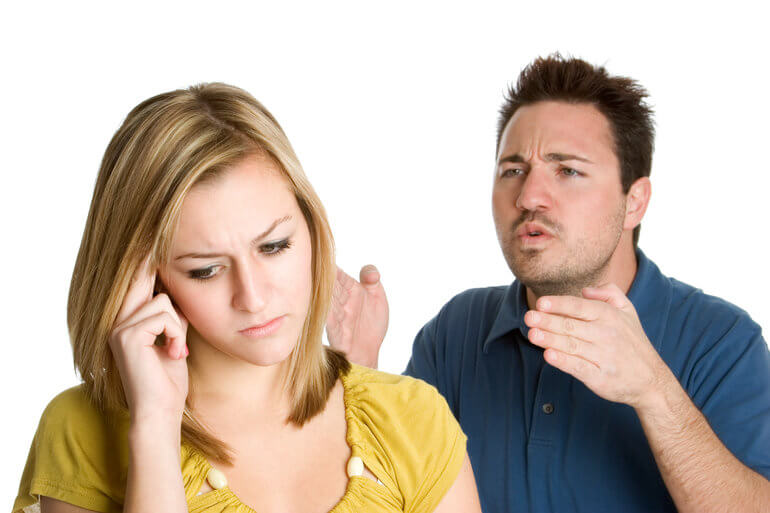
Marriage is meant to be a lifetime commitment to friendship, understanding, and equal partnership. Partners rely on one another for support in hard times. But when one partner becomes abusive, it destroys the foundation of respect and sows even deeper seeds of hurt and distrust. The harmful dynamic that an abuser creates can also affect a couple’s children.
Identifying an Abusive Relationship
Unfortunately, identifying when you are in an abusive relationship can be difficult, especially if your partner’s abusive actions have only emerged recently. If you suspect that you or a loved one is in an abusive relationship, the following are some of the elements that you should look for.
Jealousy
Jealousy is a key element in any abusive relationship. A little spousal envy is understandable from time to time. However, when a partner begins to aggressively accuse you of infidelity or flirting for no good reason, be on your guard.
In extreme situations, abusers may “ground” their partners out of jealousy, forcing them to quit their jobs and even preventing them from visiting friends. If you find that you are becoming increasingly isolated from your friends and family because of your partner, you may be in an abusive relationship.
Degradation
Abused partners are often victims of putdowns and ridicule. Sometimes this will take place in public, but other times, it will only go on behind closed doors, making it harder for your friends and family to detect the abuse. You know you are in an abusive relationship if you are constantly being blamed for everything that goes wrong, even things beyond your control.
Abusers often attack their partners’ decisions, regardless of how thoughtful they were. They compare their partners unfavorably to other people and never miss an opportunity to criticize anything from their outfits to how they cook.
Possessiveness
In most cases, jealousy quickly evolves into possessiveness and controlling behavior. Your partner is constantly checking to determine where you are, whom you are seeing, and what you are doing. Your partner may even limit the places you can visit and set curfews for you. If you’ve lost your freedom and are unable to do anything other than what your partner suggests, you may be in an abusive relationship.
Physical Violence
When a partner becomes persistently violent, constantly pushing you, hitting you, or angrily destroying objects around the house to frighten you, the relationship is abusive. Physical violence may also involve rape, sexual assault, and other physical acts of force or manipulation. A physically abusive partner may also lash out at the kids or other family members.
What to Do: Get Help
If you are in an abusive relationship, the first thing you need to do is recognize the fact that you need help. Contrary to what movies might suggest, abusive partners rarely get better. They don’t suddenly do a 180-degree turn, recognize their flaws, and become better spouses. If anything, their actions continue to worsen with more severe consequences.
Your options in this case are to leave the relationship, try to get help for your partner, or do both. Regardless of what you decide, make sure that you involve other parties. You will need a strong support system to deal with an abusive partner. Some of the people you can contact for assistance include friends, family members, religious leaders, attorneys, and mental health professionals.
You can also call hotlines for advice and emotional support. If you leave your partner, make sure you go to a place that is far from your current home. Somewhere your partner cannot easily show up whenever he or she wants.
Ask friends and family members that you trust if they’ll open their homes to you. If you do not have a place to go, look around you for the closest shelter that offers accommodation. Some of the other things that you should consider doing include the following:
1. Inform your neighbor or anyone living close to you about the abuse. Encourage them to contact the police if they should hear odd noises or don’t see you for some time.
2. Find a safe place in your house where you can hide in case of a violent incident. For good measure, if possible, choose a room with a deadbolt on the door.
3. Keep the phone numbers of the police, friends, and shelters on speed dial. Once this is done, memorize them.
4. Get a cell phone and make sure it is always charged. Keep the phone close to you at all times.
5. Pack an emergency escape bag that you can grab if you ever need to leave in a hurry. The bag should contain your important documents and items: clothes for the kids if you’re a parent, custody agreement, lease agreement, medical records, work permit, social security card, and passport.
6. Put aside some money in a personal savings account for emergencies.
7. Consider taking legal action to protect yourself from your partner. There are steps you can take to limit the abuse in your home.
8. If you have been injured, get medical help for your injuries. Do not forget to take pictures of any bruises you might have.
The Bottom Line
No one deserves to be in an abusive relationship. No one. If you find yourself in a relationship that has become violent and abusive, do something about it. Confide in loved ones who can help you and offer you support.
You should also make sure to find a safe place that you can go to get away from your partner. Somewhere within a 30-minute drive, so you can safely retreat without fear of your partner following you. Finally, be sure to confide in local law enforcement. The police can help protect you.



